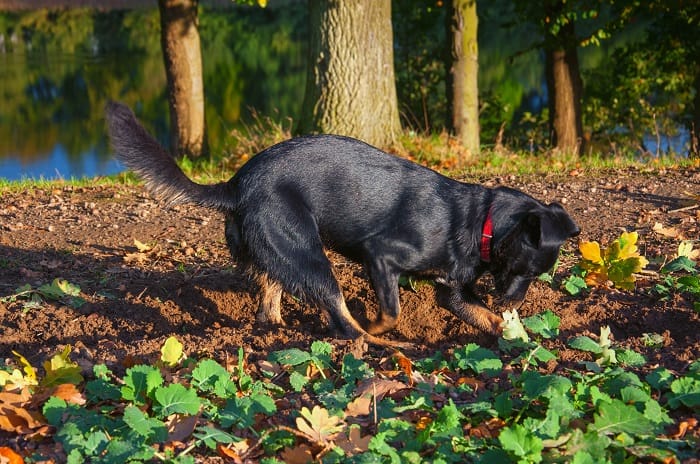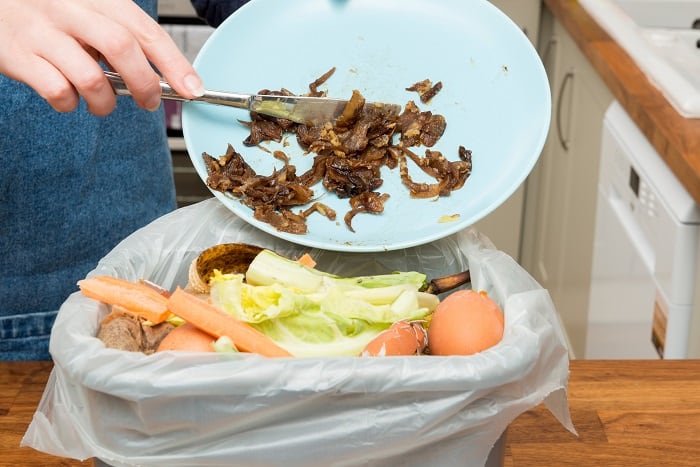The process of composting refers to the idea of placing organic materials on the
‘Can you compost meat?’ is a debatable question commonly asked by the people. This material once composted, however, shares a bit of pros and cons.
Composting Basics
Composting is a relatively easy process with simple organic materials needed. The basic materials necessary are the browns composing of twigs, branches and dried leaves, greens, such as grass and vegetable and fruit waste, and water to help breakdown the solid organic materials.
Brown material emits carbon, green provides nitrogen, and water gives off moisture to help start the entire process.
The Importance of Composting
As mentioned, composting serves as plant fertilizers and minimizes trash. These benefits are often overlooked by the people as they prefer to use commercial fertilizers (with toxic chemicals) rather than the natural composts which they can easily create using organic and raw materials.
Composting versus Commercial Fertilizers
Commercial fertilizers, though not all, are mixed with non-organic chemicals which can be toxic to the environment. Nitrogen-based fertilizers, for instance, can be detrimental to the environment, as it is frequently known to pollute water. As a result, it becomes a potential threat to various species, including humans.
On the other hand, composting is a natural alternative in providing fertilizer to plants. Although the process is slower and messier, the aftermath is safer for the environment.
Releasing Greenhouse Gas
Organic materials placed in the landfills release methane, one of the listed greenhouse gases. Greenhouse effect, as caused by these gases, is an exchange between radiations coming in and out, which warms the Earth’s surface.
As long as these gases, which are responsible for the greenhouse effect, are in the right proportion, the amount of heat emitted is literally safe enough to preserve life. However, once produced in excess, this becomes an environmental problem by drastically changing the climate.
As the majority of the population practice disposing of organic materials directly in the landfill, the amount of methane produced in addition to other greenhouse gases from other sources exceeds the Earth’s threshold; thus, giving off a negative effect to the environment.
Therefore, utilizing organic materials as fertilizers lessens the release of greenhouse gas, which in turn, minimizes the greenhouse effect.
Composting Meat
Meat is often off-listed in the composting process. Albeit, it is viable to compost meat for the reason that it is organic in nature. The process, however, shares its own pros and cons.
The Advantage of Composing Meat
Just as disposing of other materials, getting rid of meat through composting can minimize trashes from excessively piling up in the landfill. However, the process can be tedious in contrast to other materials.
Deciding to compost meat products to lessen waste production in your household may require you to turn the compost frequently. It should also be continually done until the interior part of the pile to ensure that it’s completely composted.
The Disadvantages of Composing Meat
Apparently, the amount of disadvantages exceeds the advantage of composting meat products, apart from its hassle and meticulous process.
Introduction of Pests and Other Animals
Knowing that meat products are one of the most sellable for consumption, unwanted guests or pests start to infiltrate the area where you decide to compost the meat product. Apart from pests, other animals, including dogs and cats (especially stray ones), will also start to consume the product if left in the open.
Not only will this mess up the area, but this also serves as a potential threat to spreading diseases.

Potential Carrier of Pathogens
Aside from inviting pests and animals in your space, improper composting of meat can also cause serious problems by culturing bacteria. Bacteria are known to cause certain diseases acquired through water, air, improper cooked food, and so on. As a result, this may lead to the spread of bacterial diseases in the area.
If your compost pile isn’t hot enough, several bacteria won’t stop spreading through the product. One commonly isolated pathogen, Escherichia coli, can continue to live up to two years.
Produces Putrid Smell
Given that bacteria start to infiltrate the meat product, meat products unexposed to high temperatures start releasing foul smell, which can be irritating or even nauseating.
Cooked meat, in comparison to raw meat, tends to breakdown faster and produces lesser foul smell. Just like green products, meat is also rich in nitrogen – a component necessary in composting.
Commercially Composting Meat
After the concise discussion about the positive and negative points about meat composting, it’s still possible to continue practicing the aforementioned as a way to minimize waste in the landfill and also utilize a more natural way of providing fertilizers for the plants.
Certain compost facilities are readily available to dispose of meat and blood products. They process the products in such a way that it becomes safe to use on specific crops such as tree farms, winter wheat, corn, and hay. Unfortunately, this engineered product isn’t applicable for home gardening.
FAQ’s
Can you compost chicken manure?
You can use chicken manure. Some say yes, some say no. I would try it first in a small area first. You will be amazed at how much chicken manure smells, so you may not want to use it in the main garden. Chicken manure is rich in nutrients and works well as a soil amendment. It contains nitrogen, phosphorus and potassium (NPK), all of which are beneficial to the soil. It also contains some trace elements like zinc and copper.
You have to be careful though. Remember that it can contaminate your soil if you’re not careful. The chicken’s waste contains a lot of nitrogen, which is a key element in plant growth. If you add chicken manure to your garden or compost pile, you’re adding too much nitrogen to the mixture.
Will it attract unwanted animal visitors?
Some say that it’s not a good idea to mix meat and bone into your compost pile. It will attract vermin like rats and mice. You can add some wood ash or other non-compostable materials to the mix to help deter animals. You can also add other food scraps to the mix to help reduce odors.
Can You Compost Meat?
Going back to the original question, meat is an organic material capable of the composting process due to a high amount of nitrogen present. However, unlike other organic materials, meat requires a much tedious process with frequent monitoring to avoid pests and pathogens.
Deciding to compost meat will require you to do it in a minimal amount and under high temperature with intense monitoring and turning of the pile to ensure that it’s safely composted.

Can you compost chicken manure?
You can use chicken manure. Some say yes, some say no. I would try it first in a small area first. You will be amazed at how much chicken manure smells, so you may not want to use it in the main garden. Chicken manure is rich in nutrients and works well as a soil amendment. It contains nitrogen, phosphorus and potassium (NPK), all of which are beneficial to the soil. It also contains some trace elements like zinc and copper.
You have to be careful though. Remember that it can contaminate your soil if you’re not careful. The chicken’s waste contains a lot of nitrogen, which is a key element in plant growth. If you add chicken manure to your garden or compost pile, you’re adding too much nitrogen to the mixture.
Will it attract unwanted animal visitors?
Some say that it’s not a good idea to mix meat and bone into your compost pile. It will attract vermin like rats and mice. You can add some wood ash or other non-compostable materials to the mix to help deter animals. You can also add other food scraps to the mix to help reduce odors.
Conclusion
Can you compost chicken manure?
You can use chicken manure. Some say yes, some say no. I would try it first in a small area first. You will be amazed at how much chicken manure smells, so you may not want to use it in the main garden. Chicken manure is rich in nutrients and works well as a soil amendment. It contains nitrogen, phosphorus and potassium (NPK), all of which are beneficial to the soil. It also contains some trace elements like zinc and copper.
You have to be careful though. Remember that it can contaminate your soil if you’re not careful. The chicken’s waste contains a lot of nitrogen, which is a key element in plant growth. If you add chicken manure to your garden or compost pile, you’re adding too much nitrogen to the mixture.
Will it attract unwanted animal visitors?
Some say that it’s not a good idea to mix meat and bone into your compost pile. It will attract vermin like rats and mice. You can add some wood ash or other non-compostable materials to the mix to help deter animals. You can also add other food scraps to the mix to help reduce odors.
Composition refers to organic materials placed on the
If you have other methods in composting meat products apart from what’s mentioned above and if you know other advantages of composting meat, don’t hesitate to share your bright ideas below.





